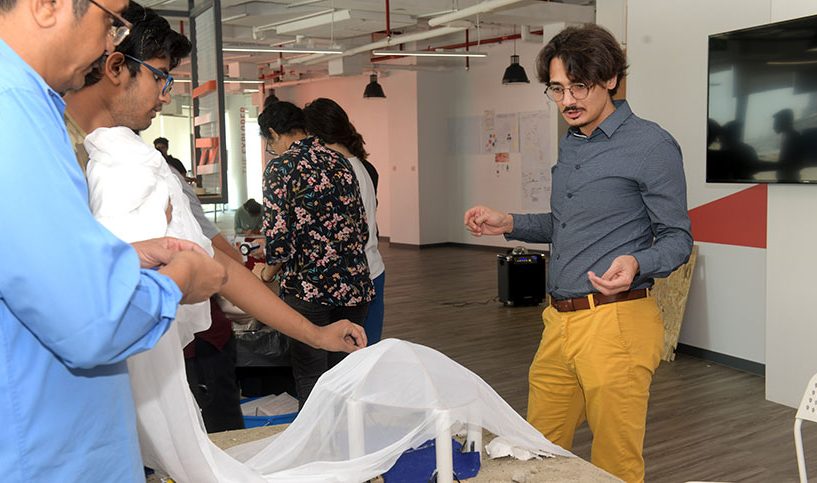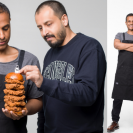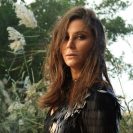Visionary designer and Assistant Professor at the Dubai Institute of Design and Innovation Dr. Raffi Tchakerian believes in merging various disciplines of thought to present tangible solutions to help societies progress. With Nuqat’s upcoming Regional Conference, you now have the chance to learn from Dr. Tchakerian, as he will be directing the super interesting workshop titled ‘Elastic Societies’.
Perfectly in line with this year’s theme, ‘State of the Elastic Mind: A New Mindset for Old Barriers’, Dr. Tchakerian’s ‘Elastic Societies’ workshop signals to a very important question: With societies becoming more and more diverse, how can we foster strong connections between diverse groups? With the objective of showing participants how to nurture an ethos of cohesion and positivity amongst diverse communities living in one society, participants will be asked to find solutions to existent societal problems through design tools and modern technology.
Dr. Tchakerian has experience in multiple fields of design, including aerospace, aviation, medicine, humanitarian design, product design, interactive design and robotics. His work is nurtured through cross-fertilizations between these various fields, with the goal of improving the interactions between humans and the technology they use, and environments in which they live. As a visionary designer, Raffi’s projects are colorful in nature, touching on every imaginable design field from space to the developing world. Over the past decade Dr. Tchakerian has collaborated with a large number of leading international designers, including the design studio, Architecture and Vision, and space architects, Arturo Vittori and Andreas Vogler.
What did you want to be when you were growing up?
A designer of dreams; I was obsessed with special effects in the movie industry and how they managed to make dream like realities come true in different ways. It wasn’t until the moment when I discovered Industrial Design that I realized I can design and build dreams for real, instead of merely using special effects.
Have you faced any structural, social or personal barriers in your personal or professional journey? If so, what were they?
During my school years in Beirut I suffered a lot. Being a visual learner, it was very difficult to adapt to the antiquated systems of learning and most of the time I ended up being amongst the last in my class. Back then, and unfortunately still in a majority schools today, there are no student-centered, customized, teaching methods. Being a design professor in the Dubai Institute of Design and Innovation, we still get a lot of students that exhibit great memorization skills, but with zero abilities in critical thinking.
What do you do when you are experiencing a creative block?
I take a walk.
What can participants expect to learn in your workshop?
The “Elastic Societies” workshop is a tentative to address social barriers by combining design tools and innovative technologies. The participants of the workshop will explore various design opportunities and find ways to overcome social barriers that have to do with Education, Interaction and Integration. During the workshop, the participants will be introduced to a clear design process and methodology, which they will learn, adapt and use during the entire duration of the workshop. Some of the tasks foreseen in the process are, Research, Concept Development, Sketching and Visual Representation, Prototyping, Keynote presentations, etc.
How will attendees practice elastic thinking in your workshop?
Design Tools could be used to solve any sort of problem out there, the topic of this year’s workshop happens to be just one of the opportunities we are going to tackle. By default, the application of design tools requires elastic thinking, you can’t apply them if you don’t take into consideration key elements like empathy, communication, and collaboration.
What is your teaching philosophy?
I am far from a teacher that feeds ideas or enforces ideologies, but simply a guide ready to explore and discover problems with my colleagues (students) – or better yet opportunities, mining from them visionary and innovative solutions, a process that not only would guarantee tangible results; but also help learn to teach the proper self, he needed tools and the skills to overcome determined problems, which is at the core of my teaching philosophy.
Do you believe that the process of practicing “elastic thinking” could be taught, or is it best understood through experience?
A lot can be taught, but it all depends on the dedication of the person and the level of apprehension; however, it is in my opinion that you would spend five times more resources in teaching elastic thinking rather than apprehending it through experience.
What would you consider to be the starting point of your career?
The starting point of my career was during my Master’s degree when I chose to take a course with taught by Arturo Vittori, a space architect and designer, and the brother of the Italian ESA Astronaut Colonel Roberto Vittori. A few months after joining Arturo’s class, he asked me to collaborate with him on space projects. It started there and went on for more than a decade from designing space-ships to water collecting structures in the remote areas of the world.
What would your superpower be?
Persistence.
How do you relax?
I don’t. I never relax.
What item would you put in a time capsule to help the next century understand our current moment?
Today’s newspaper.
What are you looking forward to the most about coming to Kuwait?
To work with and discover amazing participants from different cultural backgrounds and to learn from them.
Is there a turning point or an experience in your life that made you change your mindset or practice elastic thinking? If there is—please take us through that process. I.e. what was your initial mindset, what was the experience you were faced with that triggered you to change your mindset and what mindset are you in now?
The main turning point in my life in terms of elastic thinking was when I moved from Lebanon to Italy at the age of 18; it was my first time traveling to a different country. Since then, and every time I have travelled, I have come to realize that exposure to different cultures and ways of thought is necessary to really change your mindset.
Workshop Details
Title: Elastic Societies
With societies becoming more and more diverse, how can we foster strong connections between diverse groups?
Objective: This workshop shows participants how to nurture positive relationships between diverse communities living in one society. Participants will find solutions to problems that exist between these groups through design tools and modern technology.
This workshop is divided into three categories of solutions – services, environments, and physical devices. These solutions can be digital or physical.
Based on participants areas of interest, they can develop design solutions and innovative tools focused on:
- Education: Education is the basis of social inclusion. It is important for people to learn the social norms, language and cultural behaviors and rules of the community they are joining.
- Interaction: Interaction is important as contact between diverse groups in appropriate environments lessens hostility and prejudices between different communities.
- Integration: Although it is important to develop and adapt one’s culture when integrating with other societies, communities must also preserve its origin’s culture and language.
For example, participants will learn how to develop environments that promote intercultural interaction and dialogue and together develop tools that will do so. Attendees could also learn how to create applications that use artificial intelligence to educate different societies about one another.
DAY 1 | Introduction, group research, and presentations
DAY 2 | Brainstorming and concept generation
DAY 3 | Idea selection and project development
DAY 4 | Project development and final presentation preparation
DAY 5 | Final presentations
Register for the workshop today at www.nuqat.me and stay updated about Nuqat’s latest on Instagram @nuqat. Featured image courtesy of Raffi Tchakerian.











